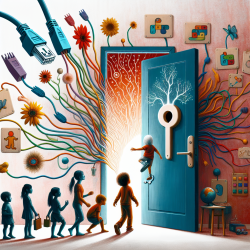Behavioral problems in preschool children can lead to significant challenges, including increased rates of expulsion and suspension from early education settings. A recent study published in the Journal of Behavioral Health Services & Research highlights the importance of integrating behavioral health services into pediatric primary care to address these issues early and effectively.
The study, "Integrated Behavioral Health for Preschool Children in Pediatric Primary Care," presents compelling evidence that integrating behavioral health services within the pediatric primary care setting can prevent adverse outcomes and support both children and their families. This model not only provides timely and accessible evaluation and treatment but also offers consultation to childcare providers, ensuring a holistic approach to early childhood mental health.
Key Findings and Implications
- Reduction in Preschool Expulsion: Integrated behavioral health services significantly reduce the rates of preschool expulsion by providing comprehensive support to children and educators.
- Early Intervention: Addressing behavioral issues at a young age can prevent the development of more serious emotional disorders later in life.
- Parental Support: Programs like the Triple P (Positive Parenting Program) increase parents' skills and confidence, which in turn reduces children's behavioral problems.
- Cost-Efficiency: Integrating behavioral health into primary care is cost-effective and improves overall healthcare quality.
Case Studies
The study presents three case studies that illustrate the benefits of this integrated approach:
- Jay: A 3½-year-old who was at risk of expulsion from Head Start due to disruptive behavior. Through coordinated efforts between his pediatrician, a social worker, and his school, Jay received an IEP and behavioral supports, resulting in significant behavioral improvements.
- Carl: A 4-year-old with frequent behavioral outbursts. By implementing the Triple P program and collaborating with his preschool, Carl's aggressive behaviors decreased, and his overall behavior improved.
- David: A 5-year-old experiencing daily behavioral outbursts. With the help of a social worker and a behavior support plan, David's physical aggression decreased, and his coping skills improved.
Recommendations for Practitioners
Practitioners can enhance their skills and improve outcomes for children by implementing the following strategies:
- Integrate Behavioral Health Services: Incorporate behavioral health providers within pediatric primary care settings to ensure timely and accessible care.
- Use Evidence-Based Programs: Implement programs like Triple P to support parents and address children's behavioral issues effectively.
- Collaborate with Childcare Providers: Work closely with educators and childcare providers to create a consistent and supportive environment for children.
- Advocate for Holistic Support: Encourage policies that promote mental health consultation and support across home and school settings.
To read the original research paper, please follow this link: Integrated Behavioral Health for Preschool Children in Pediatric Primary Care.










